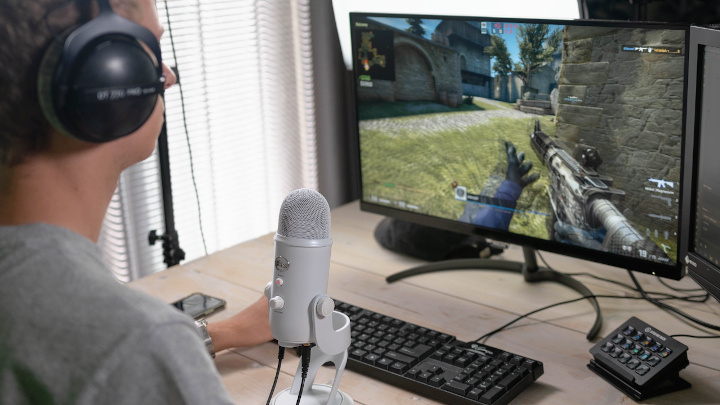Research Reveals: Violent Games do Not Increase Aggression Levels
This is almost a taboo subject for the gaming community - the possible influence of violence in games on the behavior of young (and not only) people. However, the results of the latest, long-term research finally provide a definitive answer to this issue.

- Violence in video games does not affect the player's level of aggression - claim results of many years of scientific research.
Sarah Coyne and Laura Stockdale, scientists from Brigham Young University, have published the results of a study on the psychological impact of violence in video games. Unlike many similar works, they are about long-term experience, focused on specific individuals. The document is titled "Growing Up with Grand Theft Auto" and is the culmination of more than 10 years of research on the problem. It can be downloaded here, on Liebertpub. Although the enthusiasm of possible readers may be cooled down a bit by the price of this pleasure - $59 per day of access to the file.

But let's get back to the most important thing - yes, violence in video games does not affect the level of aggression. The research initiated in 2007 involved young (10 years old) people from a "big north-eastern city" (source), divided into several groups. Some of them played violent video games from the beginning, some of them games with average level of violence, and the last group tested calm titles (like... Euro Truck Simulator 2). The participants were evaluated for various behavioral characteristics such as aggression, depression, anxiety and pro-social behavior. Of course, the experimental team consisted of individuals from various races and social strata.
After many years, it was found that the differences in the level of aggression between the three groups of players who played titles of different degrees of brutality were not noticeable. This means that people playing violent games from a young age, did not display more aggressive behavior in adulthood than those "preferring Sims" etc. Of course, it doesn't mean that we can let a preschooler play Postal, or, what's worse, scare him with bugs appearing in Cyberpunk 2077. You have to keep your common sense and decency, as always.
Sarah Coyne is a professor at Brigham Young University. She specializes in psychology, family and media research. She has already published a number of papers and received numerous awards - more information here.
Laura Stockdale is a graduate of Brigham Young University and Loyola University in Chicago. She is involved in video game research, psychology and mass communication. For more information, click here.
Brigham Young University is a private university in Provo, Utah, founded in 1875. It belongs to The Church of Jesus Christ of Latter-day Saints (LDS). The vast majority of students are Mormons, and the university has a fairly strict code that prohibits, among other things, drinking alcohol, most drugs and premarital sex. It offers 181 courses, including psychology, basic education, physical education and business.
- There is a surprising story behind one of the more colorful FPSs in history. No One Lives Forever' success was influenced by the „Bond” problem
- A failed revolution. Chrome 2 was supposed to refresh the FPS genre
- The end of cases in CS2? Valve's new move suggests a quiet revolution in the game's economy
0

Author: Arkadiusz Strzala
His adventure in writing began with his own blog and contributing to one of the early forums (in the olden days of Wireless Application Protocol). An electrical engineer by profession, he has a passion for technology, constructing and, of course, playing computer games. He has been a newsman and writer for Gamepressure since April 2020. He specializes in energy and space tech. However, he does not shy away from more relaxed matters every now and then. He loves watching science-fiction movies and car channels on YouTube. He mainly plays on the PC, although he has modest console experience too. He prefers real-time strategies, FPS and all sorts of simulators.
Latest News
- End of remote work and 60 hours a week. Demo of Naughty Dog's new game was born amid a crunch atmosphere
- She's the new Lara Croft, but she still lives in fear. Trauma after Perfect Dark changed the actress' approach to the industry
- „A lot has become lost in translation.” Swen Vincke suggests that the scandal surrounding Divinity is a big misunderstanding
- Stuck in development limbo for years, ARK 2 is now planned for 2028
- Few people know about it, but it's an RPG mixing Dark Souls and NieR that has received excellent reviews on Steam, and its first DLC will be released soon

